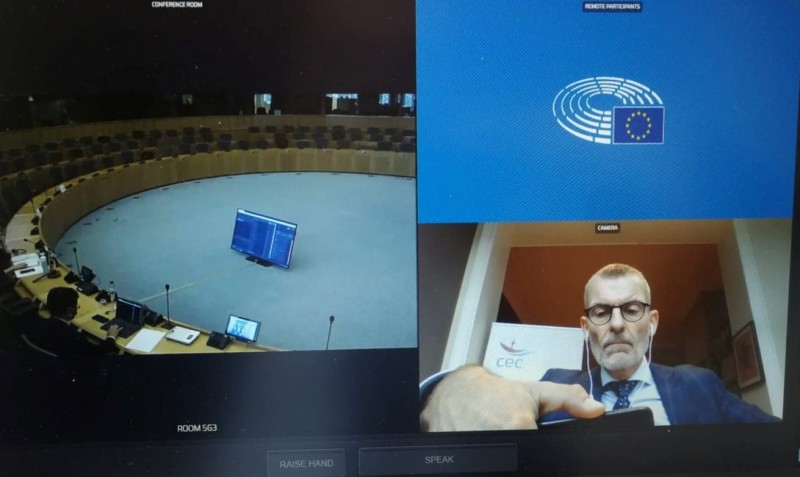“COVID-19 made our societies tremble. We stood face-to-face with the fragility of life – in some European countries on a scale that was and is unbearable,” said CEC General Secretary Dr Jørgen Skov Sørensen. “COVID-19 took away our freedom to move, a cornerstone in our self-understanding as European citizens, creating tensions between nations and individuals.”
Dr Sørensen was contributing to a dialogue seminar with churches, religious and philosophical organisations on "COVID-19 – implications for the future: a view from Article 17 partners" held online by the European Parliament on 15 July 2020.
“Interaction between the heritage of Christian faith - chiselled out as grace, love and fellowship - and the European Institutions, is paramount for a successful European future,” said Dr Sørensen.
“We point to a fellowship throughout Europe that includes everyone - from the spectacular centre to the invisible periphery. A European-wide fellowship of mutual encouragement that gives hope for the future of our tried and tested continent. After all, we all share in the same fragility – men and women, rich and poor, young and old.”
“We as churches are ready to engage in dialogue with you, adding aspects and prospects to your agendas from our particular points of view together with other Article 17 partners,” added Sørensen.
The seminar was hosted by David Sassoli, President of the European Parliament and Mairead McGuinness, First Vice-President, responsible for the Article 17 Dialogue.
Among other speakers were Fr. Manuel Barrios, Secretary General of the Commission of the Bishops’ Conferences of the European Union (COMECE), Imam Yahya Pallavicini, President of the Italian Islamic Community, Albert Guigui, Chief Rabbi of the Central Israelite Consistory of Belgium and Véronique De Keyser, President of the Centre d’Action Laïque, Belgium.
